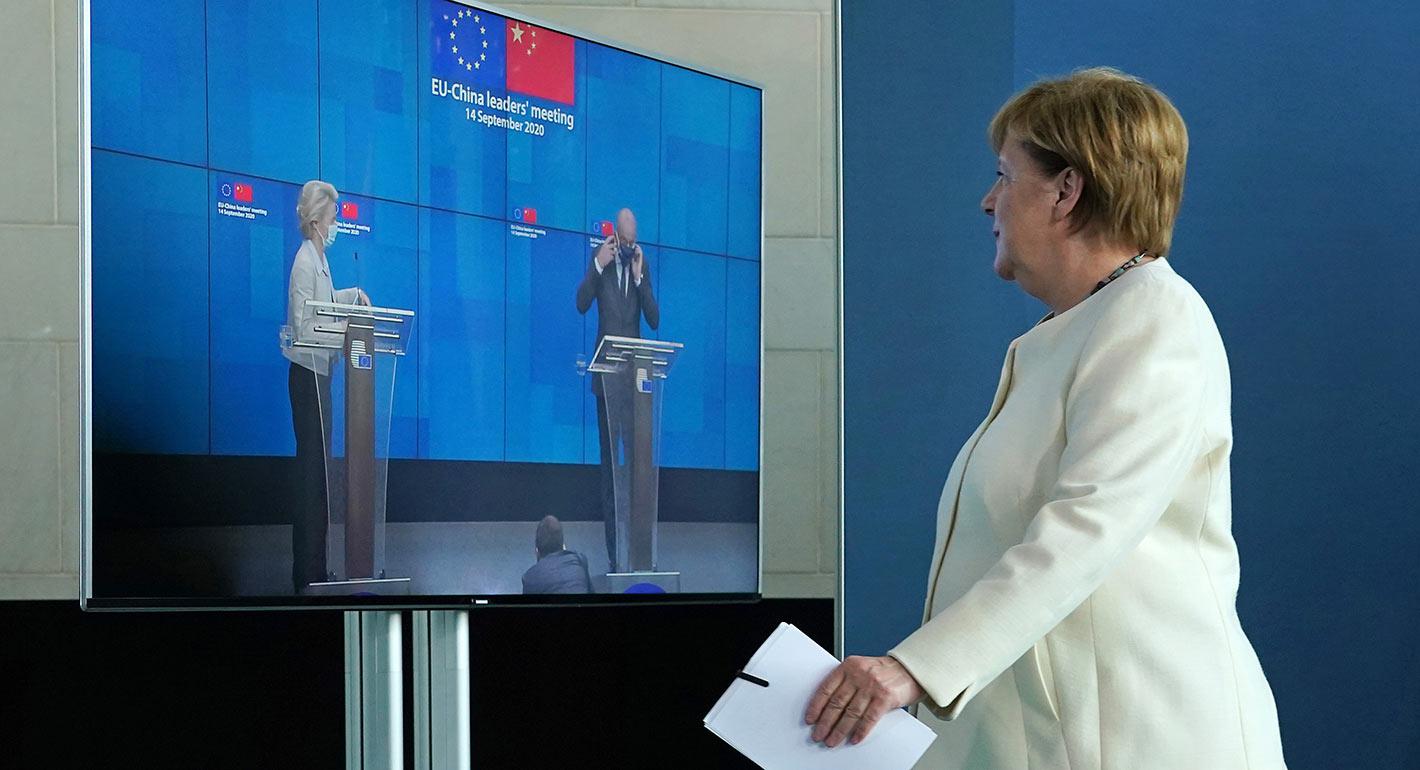It’s dangerous to dismiss Washington’s shambolic diplomacy out of hand.
Eric Ciaramella
{
"authors": [
"Philippe Le Corre"
],
"type": "other",
"centerAffiliationAll": "dc",
"centers": [
"Carnegie Endowment for International Peace"
],
"collections": [],
"englishNewsletterAll": "asia",
"nonEnglishNewsletterAll": "",
"primaryCenter": "Carnegie Endowment for International Peace",
"programAffiliation": "AP",
"programs": [
"Asia"
],
"projects": [],
"regions": [
"East Asia",
"China",
"Western Europe"
],
"topics": [
"Foreign Policy"
]
}
Source: Getty
Despite China’s apparent enthusiasm, the “year of Sino-European friendship” has brought more challenges than successes, due to a mix of promise fatigue on the European side; growing Chinese assertiveness on the international stage; and increasing Chinese propaganda and controversies around the Covid-19 pandemic.
Source: Echo Wall
Both China and the European Union enjoy anniversary years, and 2020, marking the 45th anniversary of their diplomatic relations, was meant to be a special one. From early 2019, Chinese government think-tanks and media started publishing lengthy reports on the state of the EU and its members, praising a flourishing bilateral relationship and calling for further steps. Chinese analysts were especially keen on stressing that relations with China’s largest export market were at their height – quite unlike the Sino-American relationship, which had sunk into acrimony under the Trump administration.
Despite China’s apparent enthusiasm, the “year of Sino-European friendship” has brought more challenges than successes, due to a mix of promise fatigue on the European side (with regard to a better access to the Chinese market for European companies in particular); growing Chinese assertiveness on the international stage; and increasing Chinese propaganda and controversies around the Covid-19 pandemic. In addition, Europeans have started to realize that China is not just an aspiring global power, it has become one. President Xi Jinping’s assertion that, “This new era will see China moving closer to center stage and making greater contributions to mankind,” has turned into reality. China has in fact already moved to center stage. In a year marked by a global pandemic, however, China’s double approach towards the EU and its members has thus far been unsuccessful.
Carnegie does not take institutional positions on public policy issues; the views represented herein are those of the author(s) and do not necessarily reflect the views of Carnegie, its staff, or its trustees.
It’s dangerous to dismiss Washington’s shambolic diplomacy out of hand.

Eric Ciaramella
EU member states clash over how to boost the union’s competitiveness: Some want to favor European industries in public procurement, while others worry this could deter foreign investment. So, can the EU simultaneously attract global capital and reduce dependencies?

Rym Momtaz, ed.
Europe’s policy of subservience to the Trump administration has failed. For Washington to take the EU seriously, its leaders now need to combine engagement with robust pushback.

Stefan Lehne
Leaning into a multispeed Europe that includes the UK is the way Europeans don’t get relegated to suffering what they must, while the mighty United States and China do what they want.

Rym Momtaz
As Gaza peace negotiations take center stage, Washington should use the tools that have proven the most effective over the past decades of Middle East mediation.


Amr Hamzawy, Sarah Yerkes, Kathryn Selfe